
How to stay sustainable with paper products
Have you thought about how sustainable your paper home products are? While the use of single-use plastics has (rightfully) been criticized, some products are made to be single-use - like toilet paper, paper towels, and napkins. With these products, it’s best to examine sustainability by looking at what goes into their production.
While recycled paper is still a worthy alternative to ‘fresh’ paper - reducing or repurposing waste is always a good thing - it’s not guilt-free. Because recycled paper can contain receipts, tickets, food wrappers, and similar materials, BPA plastics show up in many of these products.
Of course, the Co-op works hard to get the most sustainable products on the shelves so you don’t have to spend hours researching. The two most sustainable ‘paper’ materials for hygiene products are bamboo and sugarcane.
Bamboo is grown around the world; kids can usually identify it because of its association with pandas. (Don’t worry - industrial bamboo is a different species that is not taking away a panda’s next meal!) What makes bamboo so sustainable? First, rate of growth: bamboo can grow between a foot and 3.5 feet a day! That’s partly because bamboo is actually a grass, not a tree. Compare that to an oak tree that grows 12” annually. On a large scale, an Agriculture Department study found that bamboo produced 14 tons of fiber an acre, compared to 8 tons for loblolly pine.
Additionally, bamboo is known for producing more oxygen than most trees, and sequestering more carbon - so it can be argued that bamboo products are doing more for the environment than traditional lumber/paper sources.
The Co-op carries Bim Bam Boo bamboo toilet paper, and NatureZway’s bamboo paper towels and toilet paper.
Sugarcane is quickly becoming a sustainable alternative to traditional lumber, as well. Like bamboo, it’s a grass, not a tree, so it grows rapidly and re-grows within 3-4 months after harvest.
While not as visually recognizable as bamboo, most of us are familiar with sugarcane’s typical usage: to create sugar. But after that sugarcane juice is squeezed out, very high quality fiber is left behind - usually destined for the landfill or burning. But instead, this fiber is being repurposed for processing into paper products. How’s that for Zero Waste?
Most of the sugarcane paper products carried by the Co-op are mixes with bamboo, like Ecos toilet paper and paper towels. You can also find Ultra Green napkins, made entirely of sugarcane fiber.
More Co-op News

November Change for Good Partner: Southern Oregon Climate Action Now
November Change for Good Partner: Southern Oregon Climate Action Now
November's Change for Good Partner is

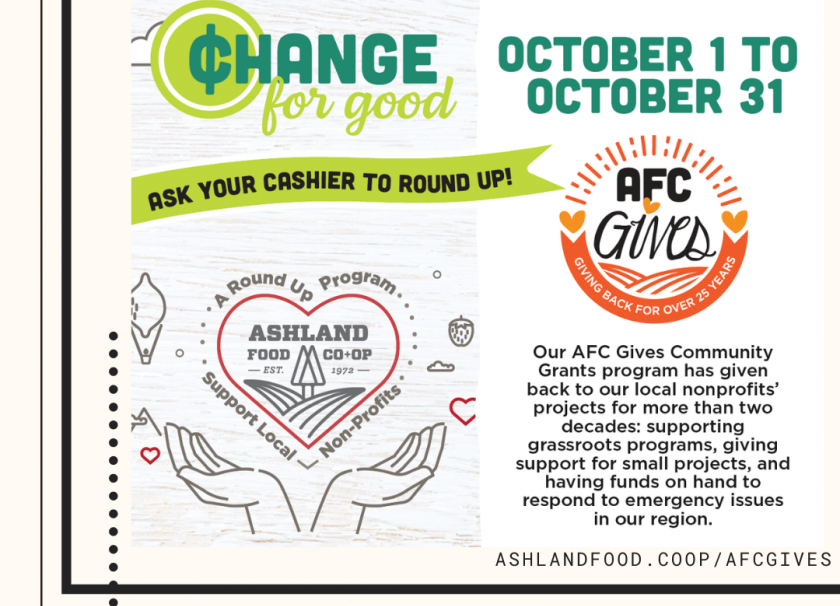
October Change for Good Partner: AFC Gives Community Fund
October's Change for Good Partner is
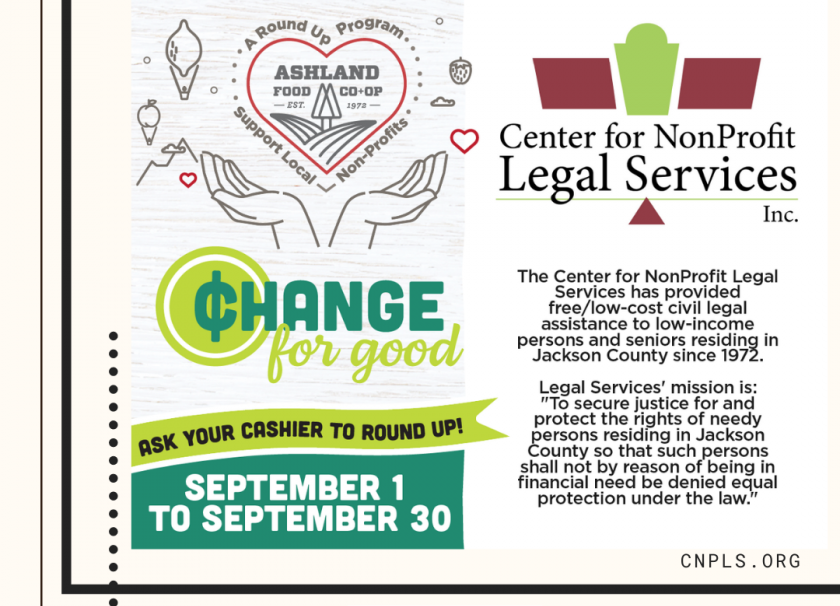
September Change for Good Partner: Center for NonProfit Legal Services
September's Change for Good Partner is
Center for NonProfit Legal Services
The Center for NonProfit Legal Services has provided free/low-cost civil legal assistance to low-income persons and seniors residing in Jackson County since 1972.
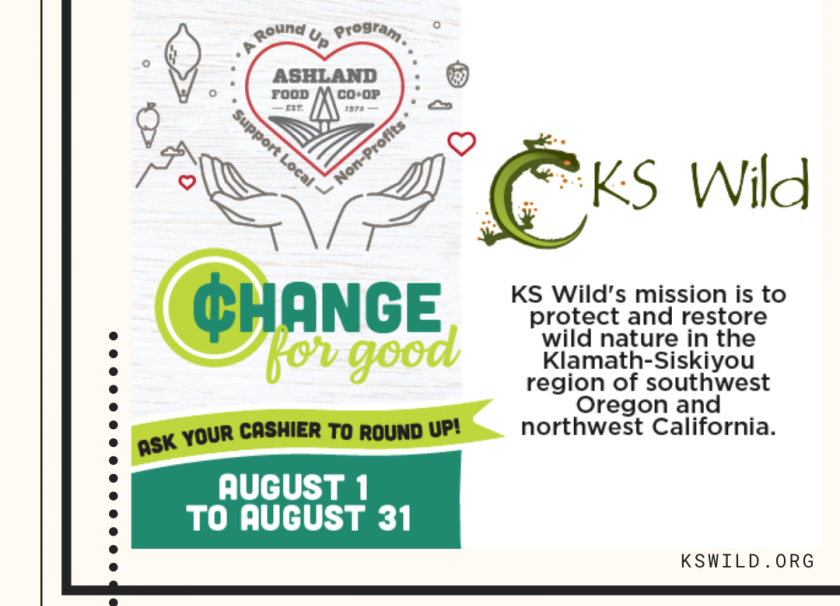
August Change for Good Partner: Klamath-Siskiyou Wildlands Center
August's Change for Good Partner is
Klamath-Siskiyou Wildlands Center
(KS Wild)
KS Wild's mission is to protect and restore wild nature in the Klamath-Siskiyou region of southwest Oregon and northwest California.

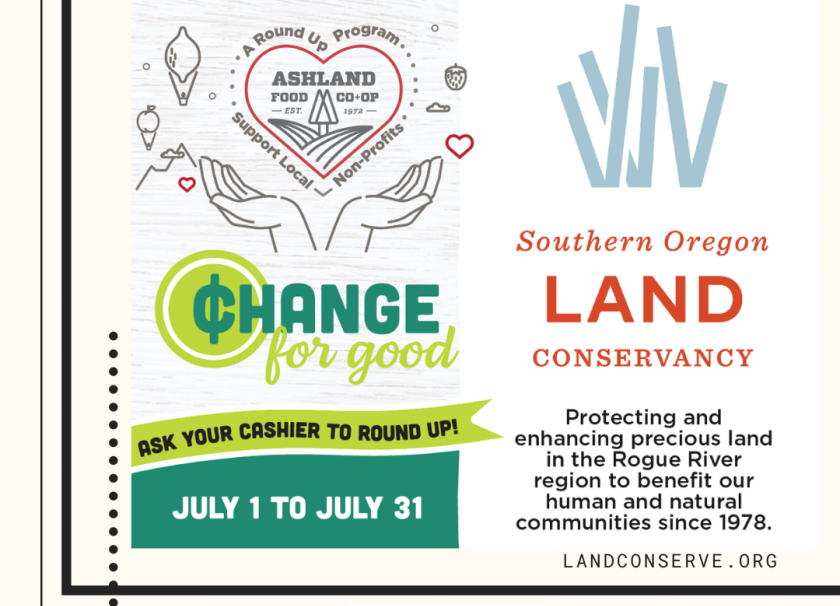
July Change for Good Partner: Southern Oregon Land Conservancy
July's Change for Good Partner is
Southern Oregon Land Conservancy
Protecting and enhancing precious land in the Rogue River region
to benefit our human and natural communities since 1978
Meet the 1st Street Beet
Welcome to the newly redesigned and reimagined newsletter from the Ashland Food Co-op: 1st Street Beet.
Think of this publication as a resource to know what’s going on in every level of the community: at the co-op, around town, in the region, and on Earth!
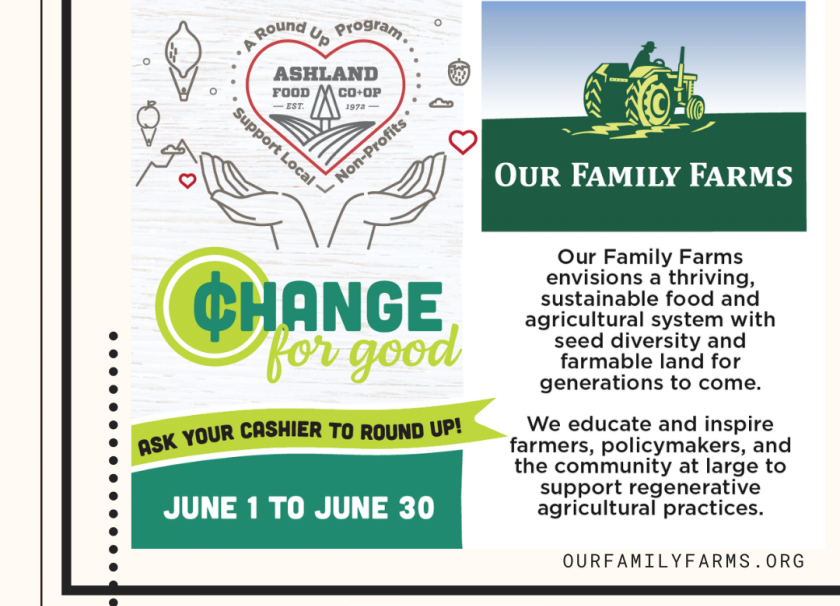
June Change for Good Recipient: Our Family Farms
June's Change for Good Recipient is
Our Family Farms, an Oregon 501(c)3 non profit organization, is hard at work educating and inspiring farmers, policy makers and the community at large to support regenerative agricultural practices.

Capiche Conversations: Interview with Tracy Kaiser, Marketing & Education Manager of Ashland Food Co-op
Our own marketing manager, Tracy Kaiser, was interviewed by Melissa L. Michaels for Capiche Conversations.
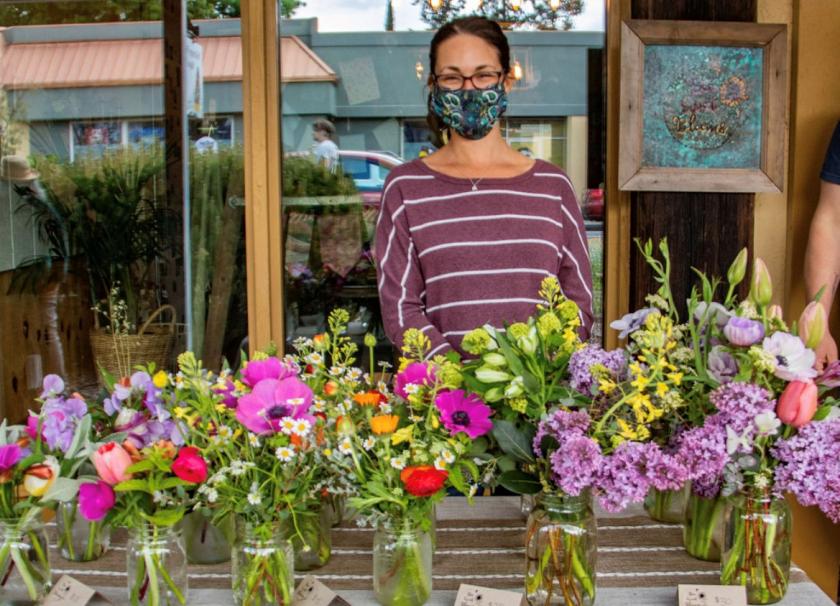
May Day Community Block Party
Photography by Chelsea Whitney Art
On May 1st, several Southern Oregon businesses came together for a block party to provide a space to gather as a community after a rough spell due to the pandemic and fires. The May Day Block Party was hosted on Main St in Phoenix, where the scent of food trucks mingled with artisan goods such as local cheeses, locally farmed flowers, and even fresh-baked pastries.
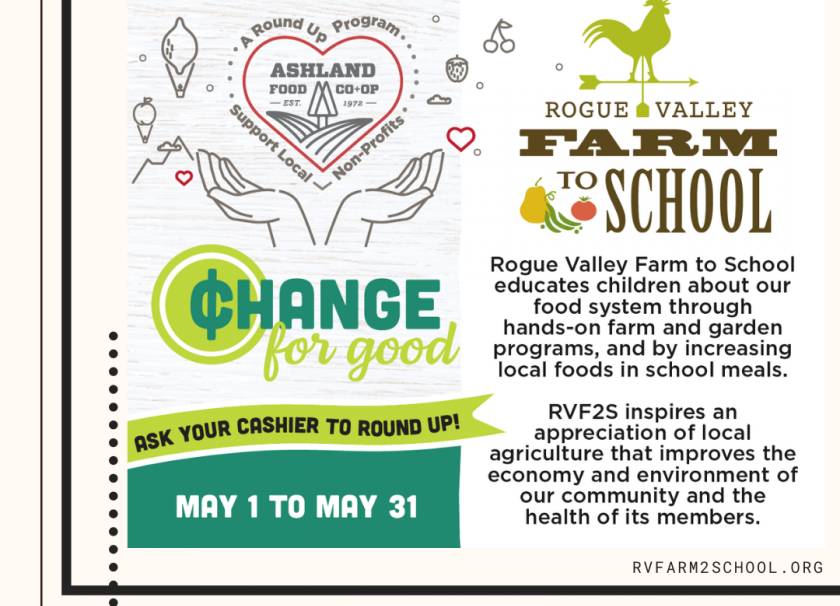
May Change for Good Recipient: Rogue Valley Farm to School
May's Change for Good Recipient is
Rogue Valley Farm to School educates children about our food system through hands-on farm and garden programs, and by increasing local foods in school meals.
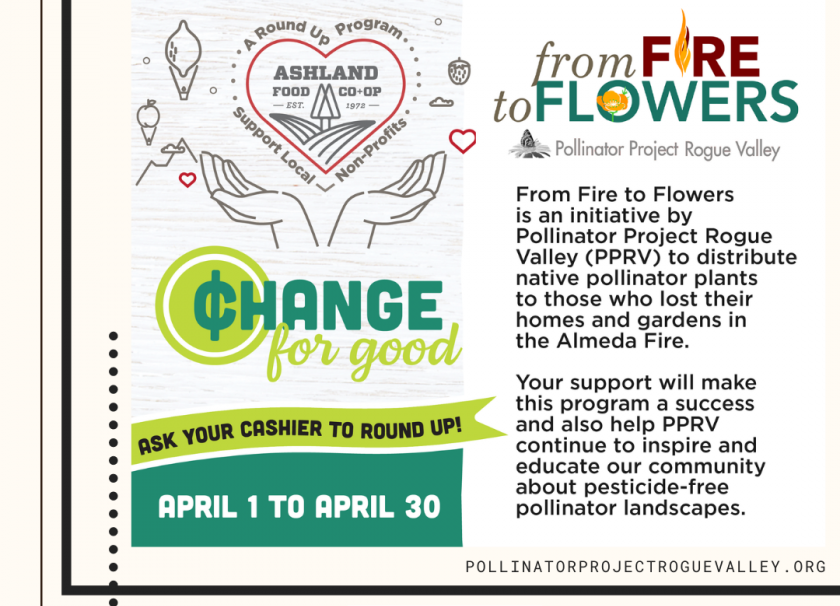
April Change for Good Recipient: Pollinator Project Rogue Valley
April's Change for Good Recipient is
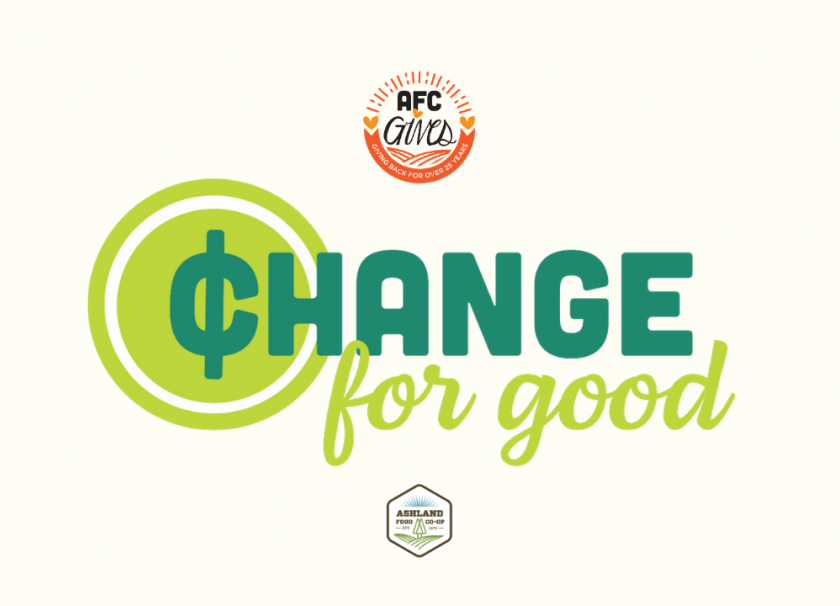
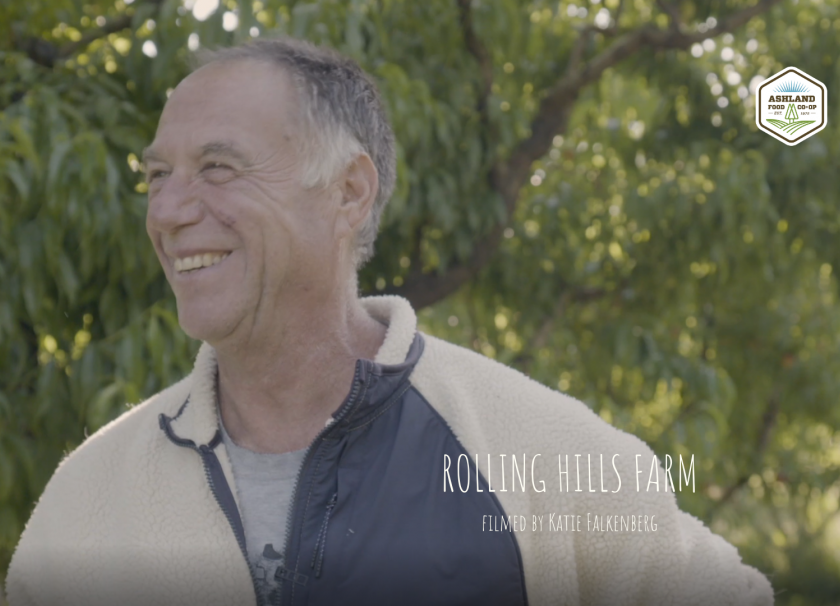
A Visit with Rolling Hills
Visit Rolling Hills Farm and learn more about owner Dave Belzberg, who the Ashland Food Co-op is so honored to partner with for more than thirty five years.

